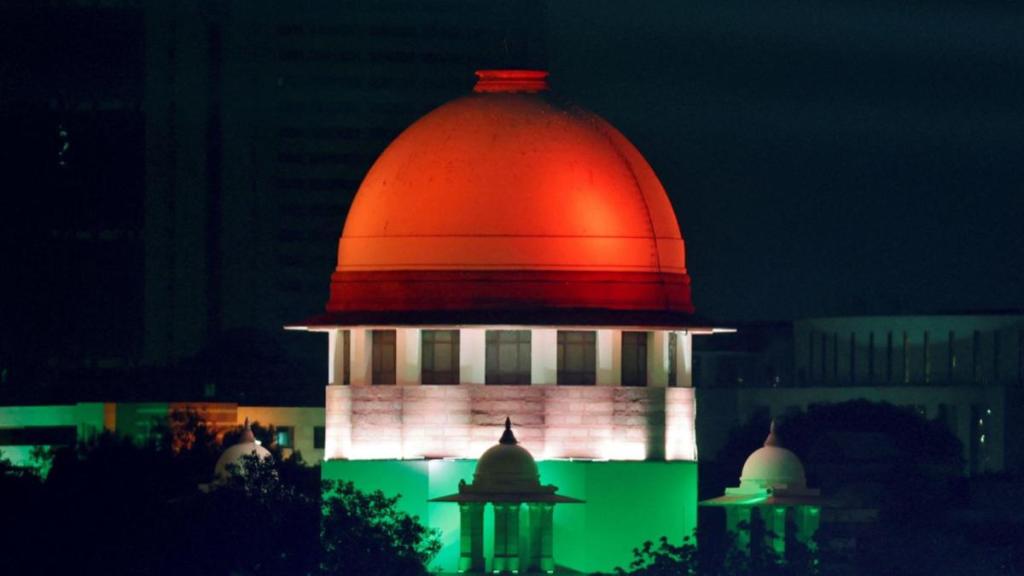By Trisha Shreyashi,
The Supreme Court of India on Friday has delivered a significant ruling, drawing attention to the red flags in the interrogation and arrest procedures followed by the Enforcement Directorate (ED).
Earlier this year, a single bench of the Hon’ble Supreme Court had held that the power to arrest under the Prevention of Money Laundering Act (PMLA) cannot be exercised on the whims and fancies of the ED officials. It ought to be based on objective and fair consideration of material against the accused.
Furthermore, in a slew of significant judicial pronouncements this year, the courts have granted bails to many of the accused who have been in custody of the ED and the Central Bureau of Investigation, for months. These decisions reveal the leniency and the changing approach of the judiciary towards the interpretation of special criminal statutes and the powers of law enforcement agencies like ED and CBI.
The Hon’ble Supreme Court pronouncement in the case of Anil Tuteja v. Union of India on 06.12.2024, addressing the controversial arrest of the former IAS officer in connection with the Chhattisgarh liquor scam might act as a prod to the law enforcement agencies to conduct the investigations and arrests as per the due process of law, particularly in cases of public and political corruption.
ED’s investigation practices “unpardonable” – Takeaways & Implications
The Hon’ble Bench, comprising Justices Abhay S. Oka and Augustine George Masih, in the Tuteja ruling, have flagged “disturbing features” regarding the arrest of the accused. The court noted that he was summoned to appear before the ED while already at the Anti-Corruption Bureau office, where he was interrogated overnight and formally arrested at 4 AM.
It is pertinent to note that the Supreme Court had previously quashed an Enforcement Case Information Report (ECIR) against the accused and his son in April 2024, ruling that there were no proceeds of crime as defined under the PMLA, which is essential for establishing a money laundering offense. Yet, the ED proceeded to register a new ECIR shortly thereafter, prompting further judicial review regarding its validity and basis.
The court questioned the urgency and haste behind overnight interrogations when the accused was not a flight risk and merely a suspect in a financial crime, not a terrorist. The Hon’ble Bench remarked that such practices are unacceptable and “unpardonable”.
The Court noted that Tuteja was arrested without adhering to established legal protocols, which raises crucial questions about the legality of the actions taken by the ED. It also observed there was a considerable delay in informing Tuteja’s kith and kin about his arrest, which is a violation of rights and raises concerns about transparency in the investigation process.
Justice Oka remarked that this approach raises significant concerns about constitutional rights, particularly Article 21, which guarantees the right to life and liberty. The court expressed skepticism regarding the urgency behind Tuteja’s summons while he was already being interrogated by the Anti-Corruption Bureau (ACB). The Hon’ble Bench questioned why the ED issued summons at noon when Tuteja was under ACB’s interrogation, highlighting that such actions are not typical even in cases involving terrorism.
The Supreme Court criticized the use of such measures during the arrest, suggesting that such tactics may not be justified and could undermine public trust in law enforcement agencies.
One may note that this is not the first instance where the Supreme Court has critiqued the arbitrary practices of ED and curtailed its power. In the recent past, there has been a shift in the judicial trends and approach to balance the objectives of special criminal statutes like PMLA with the rights of the accused. The court had previously expressed similar concerns about the ED’s procedures and delivered several pronouncements outlining the abuse of law and disregard of due process.
This ruling by the Supreme Court puts the spotlight on the arbitrary and coercive practices adopted by the law enforcement agencies under laws like the PMLA, potentially reshaping future legal proceedings, arrests and investigations in similar public corruption cases. It underscores the necessity for procedural integrity, due process of law and upholds the constitutional rights of the individual during investigations.
The judicial scrutiny hopefully leads to more stringent requirements of evidence to retain long drawn custody, prevent abuse of law and adherence to procedural fairness.
The author is a lawyer and columnist.
Views expressed are personal and do not reflect the official position or policy of FinancialExpress.com.


